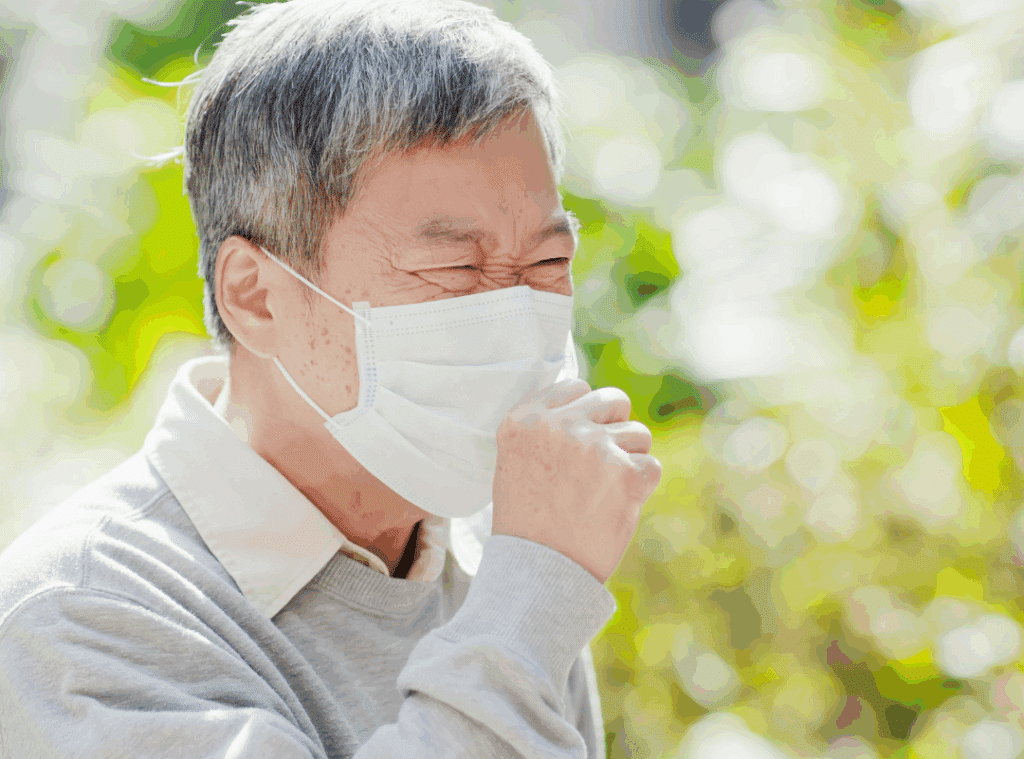Coughing is a common symptom that many people associate with the common cold or minor throat irritation. However, a cough in old age can be a sign of more serious underlying issues that demand attention. As we grow older, the immune system weakens, the lungs become less efficient, and other health conditions can contribute to more frequent or severe coughing. This is why understanding the cause, type, and timing of a cough is essential in elderly care.
Whether it’s a persistent dry cough in elderly women or elderly coughing at night disrupting rest, each episode should be taken seriously. In many cases, coughs are symptoms of manageable illnesses, but they can also signal infections, chronic diseases, or medication side effects. Knowing when you should worry about a cough in elderly individuals can significantly improve their health outcomes. Let’s explore the causes, symptoms, and treatment options in more detail to help you make informed decisions.
Understanding Acute Cough in the Elderly
As one of the most frequent reasons seniors visit their doctor, an acute cough is often the body’s way of clearing irritants from the airway. In older adults, however, even brief coughs can lead to complications due to age-related declines in immunity and respiratory function. Viral infections are the most common cause, but the recovery process tends to be slower in seniors.
It’s crucial to recognize that an acute cough can escalate into serious complications, especially when compounded by other illnesses. Seniors are also more vulnerable to influenza and pneumonia, so maintaining strong preventative care is key. Learn more about how these infections affect seniors by reading about the dangers of influenza in older adults.
Common Causes of Cough in Older Adults
So, why do the elderly cough so much? The causes vary, but some common culprits include:
- Respiratory infections like colds, flu, and bronchitis
- Chronic illnesses such as COPD and asthma
- Heart conditions, which can cause fluid buildup in the lungs
- Post-nasal drip and allergies
- Medication side effects, especially from ACE inhibitors
Recognizing these triggers is crucial for selecting the appropriate course of treatment. If your loved one exhibits a lingering or worsening cough, especially with other symptoms like fever or fatigue, it’s best to seek professional care. Regular medical evaluations can help detect problems early and reduce risks.
Types of Cough and What They Mean
Understanding the different types of coughs can help you assess their severity and determine the appropriate treatment needs. These include:
- Wet cough: Involves mucus and is typically a sign of infection
- Dry cough: Often caused by allergies, medications, or irritants
- Paroxysmal cough: Sudden and intense coughing, sometimes associated with asthma or pertussis
- Nocturnal cough: Elderly coughing at night may point to heart failure, GERD, or chronic bronchitis
A dry cough in elderly women might be dismissed as minor, but when it persists for weeks or worsens over time, it may signal more serious conditions. Pay attention to accompanying symptoms and talk to a healthcare provider when unsure. For more on identifying serious respiratory issues, explore the importance of early detection.
When Should I Worry About a Cough in the Elderly?
When should I worry about a cough in elderly patients or loved ones? Here are key red flags:
- Lasts longer than 3 weeks
- Produces green, yellow, or bloody mucus
- Accompanied by fever, fatigue, or chest pain
- Interferes with sleep or causes shortness of breath
- Leads to weight loss or confusion
These symptoms can indicate a more serious problem, such as pneumonia, heart failure, or even lung cancer. A comprehensive cough evaluation is essential. Learn more about chronic cough symptoms and what they can reveal by reading this article.

Effective Elderly Cough Treatment Options
Proper elderly cough treatment depends on the cause. Options include:
- Medications: Antihistamines, decongestants, or antibiotics (if bacterial infection is present)
- Home remedies: Honey, warm fluids, herbal teas
- Environmental controls: Humidifiers to ease airway irritation, avoiding smoke
- Lifestyle changes: Staying active, improving nutrition, and monitoring other chronic conditions
Simple remedies like warm honey-lemon tea and steam inhalation can bring relief. However, if symptoms persist, prescription medications or additional tests may be required. It’s vital to approach treatment holistically. The CDC also offers valuable resources for managing respiratory symptoms in seniors (CDC – Respiratory Health).
| Natural Remedies | Lifestyle Modifications |
| Honey for soothing | Use of humidifiers |
| Warm herbal teas | Avoiding smoke/irritants |
| Steam inhalation | Staying well hydrated |
For those managing chronic lung disease, consult your physician before taking over-the-counter products, as some may interact with current medications.
Preventing Elderly Coughing at Night
Nighttime coughing disrupts sleep and can lead to fatigue and worsening health. To manage an elderly person coughing at night, try the following:
- Elevate the head during sleep
- Avoid late-night meals that may trigger acid reflux
- Use a vaporizer or humidifier
- Stay away from allergens and dust
If nighttime coughing becomes a pattern, it might indicate heart problems or sleep apnea. Professional assessment and targeted treatment can significantly improve comfort and quality of life.
Supportive Senior Living Solutions
At Westmont of Carmel Valley, we take a proactive approach to senior health. Our experienced caregivers understand the challenges of managing a cough in old age, and we provide support through:
- Regular health checks
- Medication management
- Comfortable living conditions
- Access to on-site or affiliated medical professionals
You can explore our services or schedule a tour to see how we foster a healthier, safer living environment for seniors.
Take Action Before the Cough Worsens
A persistent cough in old age is not something to take lightly. Whether you’re managing a dry cough in elderly women, trying to understand why the elderly cough so much, or need help with elderly cough treatment, timely attention is crucial. Don’t wait until symptoms become severe or chronic. Being proactive can prevent complications and support a healthier lifestyle.
If you or someone you love is experiencing unexplained or persistent coughing, please contact your healthcare provider immediately. For trusted care and compassionate support, contact Westmont of Carmel Valley at 858-465-7356 or visit our community: Westmont of Carmel Valley.
Dive into the vibrant life our Westmont communities have to offer.Find Where You Belong
Frequently Asked Questions
When is a cough serious in the elderly?
A cough in the elderly becomes serious when it lasts more than three weeks, produces blood, or is accompanied by weight loss, fever, or difficulty breathing. It could indicate pneumonia, chronic bronchitis, heart failure, or even lung cancer. If the cough interferes with sleep or daily activities, medical attention is strongly advised. Early diagnosis can help prevent complications.
How do you stop an elderly cough?
To stop a cough in the elderly, first identify the underlying cause, such as infection, allergies, acid reflux, or medication side effects. Treatment may include cough suppressants, inhalers, hydration, or antibiotics if an infection is present. Keeping indoor air moist and avoiding irritants like smoke can also help. Always consult a healthcare provider before starting any treatment.
What causes a prolonged cough in adults?
A prolonged cough in adults is often caused by postnasal drip, asthma, gastroesophageal reflux disease (GERD), or chronic bronchitis. Certain medications, like ACE inhibitors for high blood pressure, can also lead to persistent coughing. Environmental irritants and untreated infections may be contributing factors. If the cough lasts longer than 8 weeks, medical evaluation is recommended.
What causes coughing at the end of life?
Coughing at the end of life is commonly caused by fluid buildup in the lungs, infections, or the body’s reduced ability to clear the airway. It may also be due to terminal illnesses like advanced cancer or heart failure. In palliative care, treatment focuses on relieving discomfort using medications and supportive care. The goal is to maintain comfort and quality of life.









